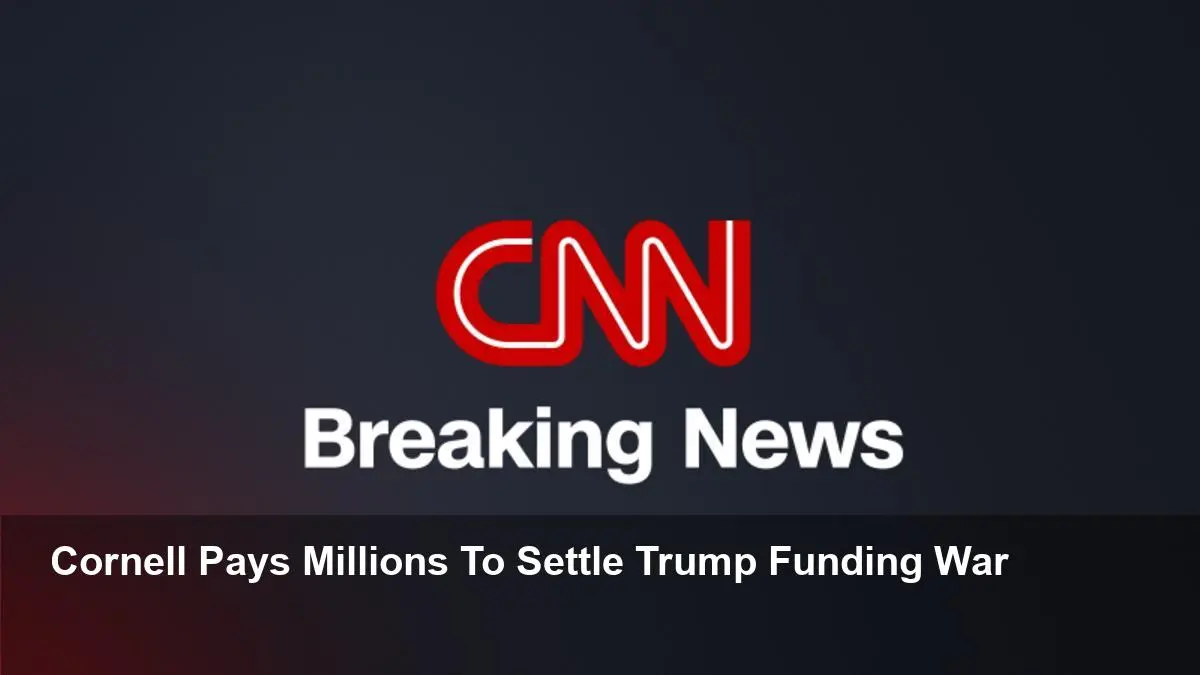- High-Stakes Agreement: Cornell University has agreed to a $60 million deal to restore over $250 million in critical federal funding that was frozen by the Trump administration.
- Costly Concessions: The deal compels Cornell to pay the federal government $30 million, invest another $30 million in specific research, and submit undergraduate admissions data for a federal audit.
- Policy Shift: As part of the agreement, the university will conduct “campus climate” surveys and address what the administration terms “divisive DEI policies.”
- Immediate Restoration: In exchange, the Trump administration will immediately restore all funding and close all pending civil rights and other investigations into the Ivy League institution.
Cornell University and Trump Administration Reach Landmark Agreement
Cornell University and the Trump administration have finalized a multimillion-dollar agreement, ending a financially crippling standoff over federal funding. The deal will see the university pay and invest a total of $60 million in exchange for the restoration of more than $250 million in federal grants and the closure of all government investigations into the school.
The agreement marks the latest development in the administration’s ongoing campaign to reshape policies at America’s elite universities, particularly concerning diversity, equity, and inclusion (DEI) initiatives.
The Price of Restoration: A Breakdown of the Deal
Under the terms of the settlement, which became effective Friday, Cornell University has committed to several significant actions:
- A $30 million payment to the federal government over the next three years.
- A $30 million investment into “research programs that will directly benefit US farmers through lower costs of production and enhanced efficiency.”
- Providing the federal government with “anonymized undergraduate admissions data” for a comprehensive audit.
- Conducting “annual surveys to evaluate the campus climate for Cornell students, including the climate for students with shared Jewish ancestry.”
A “Major Win” or A Necessary Compromise?
Reactions to the deal have highlighted the conflicting pressures at play. The White House celebrated the agreement as a victory for its agenda. “President Trump has once again delivered a major win for American students with this Cornell University deal,” said spokesperson Liz Huston.
Education Secretary Linda McMahon specifically praised the deal for targeting diversity programs, stating, “The Trump Administration has secured another transformative commitment from an Ivy League institution to end divisive DEI policies.”
For Cornell, the agreement was a reluctant necessity. In a letter to the university community, President Michael Kotlikoff described the intense financial strain caused by the funding freeze.
“The months of stop-work orders, grant terminations, and funding freezes have stalled cutting-edge research, upended lives and careers, and threatened the future of academic programs at Cornell,” Kotlikoff wrote, while also noting that the “good faith discussions” protected the university’s “academic freedom and institutional independence.”
A Broader Battle Over Campus Oversight
This settlement is not an isolated event but part of a wider strategy by the Trump administration to influence higher education. Similar financial deals were previously reached with other Ivy League schools, including Columbia University and Brown University. However, unlike some of those agreements, Cornell’s deal will not require an independent monitor to ensure compliance, a small but notable distinction. The resolution ends a period of intense uncertainty for Cornell, allowing vital research to resume while simultaneously advancing the administration’s policy goals for higher education.
Image Referance: https://www.cnn.com/2025/11/07/politics/cornell-trump-administration-deal-federal-funding
